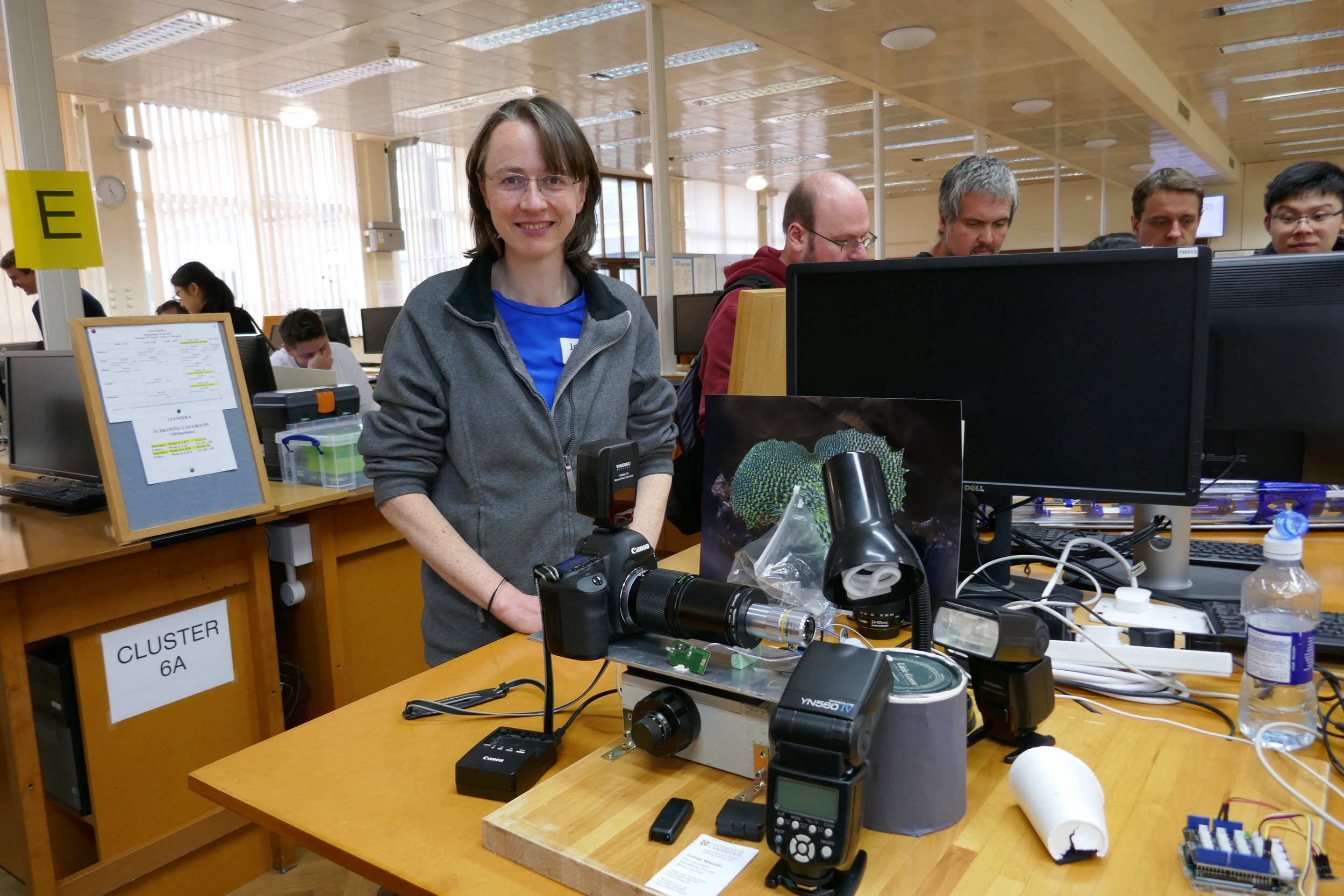Biomaker Fayre showcases 40 open source, low-cost biological instruments
There was a real buzz in the air on Saturday 21 October, as 40 interdisciplinary teams exhibited their prototypes for the 2017 Biomaker Challenge at the Department of Engineering.
Projects covered everything from spectrometers for measuring the colour of penguin guano, microfluidics for tissue culture, to ultrasonic systems for measuring plant height and 3D printed modular microscopes. Each group was given a £1000 grant and four months to turn their big ideas for open source and DIY research tools into reality and over 100 people came along to the final event.
The Challenge and Fayre aimed to show the value of open, low-cost and DIY technologies as convening points for interactions between biologists and engineers. They are also important educational tools for those who are interested in developing technical skills and have great potential for improving the quality of science and increasing productivity in the lab for lower costs. With the proliferation of digital designs for 3D-printing and easily available consumer electronics like Arduino which has a huge community of users and lots of online help, designing your instrumentation around your experiment rather than vice versa has never been more possible.
Winners of the 3D-printed awards were:
Best Technology: A low-cost chromatography system for protein purification
Stéphanie Polderdijk (Cambridge Institute for Medical Research) and Wolfgang Schmied (MRC LMB) set out to lower the cost of column chromatography: a routine technique for the separation of components from complex mixtures.
In biochemistry and molecular biology, proteins frequently need to be purified by gravity flow, centrifugation, which are time-consuming or by using expensive automated systems that use pumps to force solutions over a column. They produced a lower cost, modular, open-source alternative to these commercial systems for performing simple, routine purifications.
Best Biology: PiRMA: A low-cost rodent physiology monitoring bed for pre-clinical experiments
Marcel Gehrung, Dominick McIntyre and Lina Hacker (all from CRUK Cambridge Institute) developed a low-cost rodent physiology monitor which is suitable for a wide range of experiments and imaging applications such as Magnetic Resonance Imaging (MRI) and Computed Tomography (CT). Parameters such as Heart Rate (HR), Respiratory Rate (RR), and Temperature can be measured which are important to reduce data artefacts. Existing solutions are in the cost range of several thousand pounds and do not support the holistic workflow required in animal experiments.
Maker Spirit: A DIY focus stacking system for macrophotography of developing ferns
Jennifer Deegan (Department of Plant Sciences) and team Matthew Couchman (John Innes Centre), Tim Deegan (CohoData) and Richard Mortier (Computer Lab) developed a very low-budget focus stacking system for microphotography in order to take a series of photographs showing the development of the fern gametophyte from the very earliest feasible stage to the appearance of the first sporophyte leaf.
Dr Jenny Molloy, co-organiser of the Biomaker Challenge and Fayre reported that “the judging panel were hugely impressed by the progress the teams made over just four months and we're excited to see where people go next with these open source designs, that are free for anyone to download, replicate and build on in their own labs”.
Biomaker Challenge 2017 was jointly funded by OpenPlant, a BBSRC/EPSRC Synthetic Biology Research Centre Grant BB/L014130/1 and the Isaac Newton Trust.
The Biomaker Challenge and Biomaker Fayre were coordinated by University of Cambridge's Synthetic Biology Strategic Research Initiative and the CambridgeSens Network.
Thank you also to our sponsors ARM Ltd and New England Biolabs.






